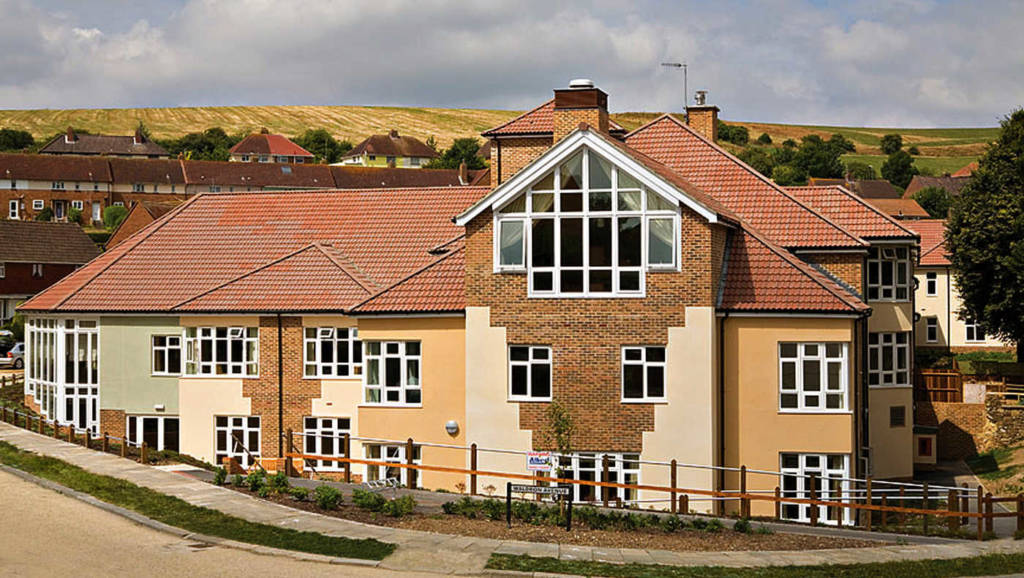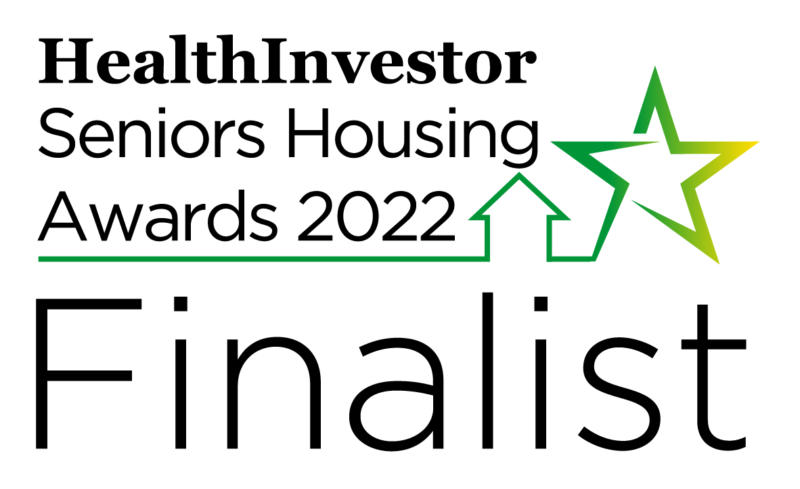June marks the celebration of Pride; a month dedicated to celebrating LGBT+ communities all around the world.
Pride is celebrated in June to commemorate the Stonewall riots, which took place in New York in June 1969 and acted as a catalyst for changes to gay rights in America and globally.
Today, Pride is a chance for us to come together in love and friendship, to celebrate how far gay rights have come, to teach tolerance and share pride history, but also for us to recognise that there is still work to be done to achieve equality.
The housing concerns and preferences of the elderly LGBT+ community
In an earlier article published by Carterwood in March 2021, we shone a spotlight on caring for the older LGBT+ community. We discussed the differences of equality and equity, highlighted key milestones in the road to LGBT+ equality and explored the care preferences and housing concerns of the older LGBT+ community.
We revealed that there is already an abundance of research and data available on the care and housing preferences of this community. Their needs and wants are often unique, frequently having led very different lives with very different experiences, and so their requirements and concerns when considering housing options are clearly going differ to those living outside of the LGBT+ community. It has been clearly evidenced that those living in the older LGBT+ community experience greater social isolation, a higher prevalence of mental health issues and reduced confidence in care, compared to the older population as a whole.
The older LGBT+ community want more than just an “LGBT+ friendly” care provider, they are seeking a housing option that genuinely affirms the lives, histories, needs and desires of LGBT+ people.
However, perhaps more importantly, our article emphasised that the demand for housing with LGBT+ specific provisions is urgent and is only set to increase, with an aging population becoming increasingly vocal about their preferences.
Click here to view our earlier article on caring for the older LGBT+ community
Ripples in a pond
Since the publication of the above article, we are glad to see that there has been significant movement, with developers and councils working together with LGBT+ steering groups and organisations to create bespoke housing options that fulfil the needs of this community. With the population of the elderly looking to swell over the coming years, and with it, it’s LGBT+ community, we are excited to see how far these ripples may travel.
Several schemes have been spotlighted in the press over the past few months; however, Anchor Hanover’s recent scheme on Russell Road in Manchester demonstrates a landmark event: the UK’s first purpose-built LGBT+ extra care housing facility.
Anchor Hanover is England’s largest not-for-profit provider of housing and care for people in later life. This innovative scheme will provide more than 100 apartments for people aged 55+, with a mix of affordable rent and shared ownership tenures. The scheme will aim to allocate housing accordingly, to create a majority LGBT+ community, with priority going to those living within the local area.
Carterwood had the pleasure of working alongside Anchor Hanover to support the acquisition of this development, providing headline and comprehensive market analysis to inform the decisions being made.
What we applaud in Anchor Hanover’s approach is that they acknowledge that the ‘why’ behind the need for specific LGBT+ housing is already out in the open; the research is plentiful, the need is clear, and the reasons are just. What Anchor Hanover are now focusing on is the ‘how’, ensuring that the housing suits the needs of the LGBT+ community.
“We know the why, and now we need to focus on the how.” Charles Taylor, Anchor Hanover

Above: Site at Russell Road, prior to the demolishing of the existing hospital
Delivering the ‘how’: Housing for the older LGBT+ community
 Our sector is comprised of specialists in providing care for the elderly; however, when it comes to delivering a scheme that needs to serve the preferences and needs of a specific community, it is essential that a bespoke approach is taken.
Our sector is comprised of specialists in providing care for the elderly; however, when it comes to delivering a scheme that needs to serve the preferences and needs of a specific community, it is essential that a bespoke approach is taken.
With this in mind, we took the time to speak to Charles Taylor, Head of New Business at Anchor Hanover, to discuss the considerations needed when taking on this type of development and key advice for other organisations looking to support the movement to provide more LGBT+ specific housing.
Above right: Charles Taylor, Head of New Business at Anchor Hanover
Let the research guide you…
Charles emphasises that research is an ongoing process, and is essential to understand where things currently stand, and where they need to go in order to best serve the community.
“Research has given us the ‘why’ behind the need for LGBT+ specific housing, and confirmed that this community often faces discrimination, unsafe housing conditions and lack the ability to live their true life due to societal attitudes from other residents, neighbours and their housing provider. It was clear action needed to be taken, and although there is a lot to be said for the integrated approach to housing for all, it is evident that is not always workable, and we need to continually improve and learn. We acknowledge that we can always do more and looking at schemes overseas, it feels there is a place for majority LGBT+ communities.”
Anchor Hanover have also been able to carry out internal research through its LGBT+ residents and staff forums and learning through their affirmative approach to housing management at New Larchwood in Brighton, the company’s first LGBTQ+ affirmative scheme.

Above: New Larchwood in Brighton, Anchor Hanover’s first LGBTQ+ affirmative scheme
Have patience, these things take time
The journey of the Russell Road scheme has taken a long time, 7 years to date in fact. Prior to Anchor Hanover bidding to develop this site in 2020, Manchester City Council and the LGBT Foundation had been on a long journey to get the site ready for tender.
- 2014: Homes England’s Equality and Diversity Board’s Task and Finish Group approached MCC to discuss the feasibility of developing an LGBT extra care scheme in the city.
- 2015: Manchester City Council’s Equalities Team commissioned a State of the City report into Manchester’s older LGBT community from the LGBT Foundation.
- 2017: Council Executive approved the principles of an LGBT majority extra care scheme.
- 2018: Manchester City Council purchased the site of a former hospital in the conservation area of Whalley Range, south west of the city centre and the Gay Village neighbourhood
- 2019: Demolition of hospital completed.
- 2019: Consideration of routes to council ownership and development
- 2020: Following soft market testing of extra care providers, a clear preference for ownership, rather than managing on MCC’s behalf, led to a decision to progress the disposal of the land by way of a development agreement and long lease.
With such a long lead time to achieving development agreements similar to that outlined above, it is essential that developers, operators, and investors look ahead to the future and keep the bigger picture in mind when getting involved with unique schemes.
Charles Taylor congratulates Manchester City Council’s dedication towards this scheme and for making the leap to secure the site and develop a scheme specific to meeting the needs of the LGBT+ community by the ‘majority’ principle.

Be open and work collaboratively
Developing a scheme that, on the surface, is much the same as any standard extra care scheme, but also considers the operational and design issues arising from research and steering group feedback, is a fine balance, especially in majority schemes such as this where there is a mix of LGBT+ and non-LGBT+ residents.
Anchor Hanover have partnered with a community steering group to help guide them, not only on the design but also to understand the views of local residents and members of the LGBT+ community. The team at Anchor Hanover felt it was essential to identify issues such as marginalisation over the years and consider the impact on residents’ perceptions of home and safety, and work towards balancing up the lack of equality/equity.
For example, Anchor Hanover are currently working on the ‘welcome’ to the scheme, for not only residents, but for family and friends. Whereas it would be rather simple to adopt a ‘normal’ approach, they feel they must consider people’s concerns and fears, especially around safety.
“We want to create a scheme that is not tucked away or hides but is instead open and inclusive.”
This approach will extend to the catering offer, the wellbeing and health facilities and community profile.
“We are using a co-production method with a group of community members from the LGBT Foundation in Manchester so we can do our best to create a community that’s safe, well designed, secure, attractive and all things we wanted to achieve, to give members of the LGBT+ community in Manchester a home where they can love living in later life.”
Anchor Hanover agree that working collaboratively is critical, especially given the dedication, time and effort that Manchester City Council and the LGBT Foundation have dedicated to the scheme already. They are proud to work alongside a range of organisations to ensure this scheme is a success, including membership and accreditation to House Proud, now becoming one of only two housing providers to achieve the highest level of accreditation, ‘Pledge Plus’.
“This scheme needs to be an example of design, community engagement and operational policy in order to support the development of new schemes and policies that can better support members of the LGBT+ community.”

Join the movement
With providers such as Anchor Hanover taking the leap and committing to schemes that provide housing tailored towards the LGBT+ community, we are hoping that more organisations will join the movement, developing more specialist homes that better serve all our elderly communities.
If you would like to find out more, Housing LIN are hosting a HAPPI Hour session on the 17th June exploring the housing aspirations of the older LGBT community and showcasing recent research and two exciting projects on the horizon, Tonic Housing’s Bankhouse scheme in London (in partnership with One Housing) and Anchor Hanover’s Russell Road development in Manchester.
Click here to find out more about the session.







